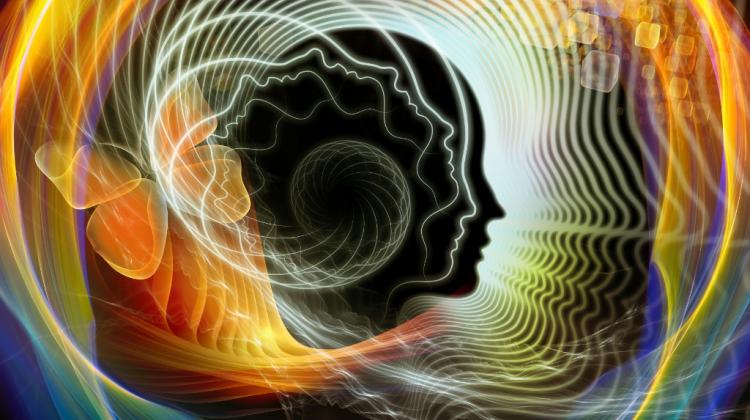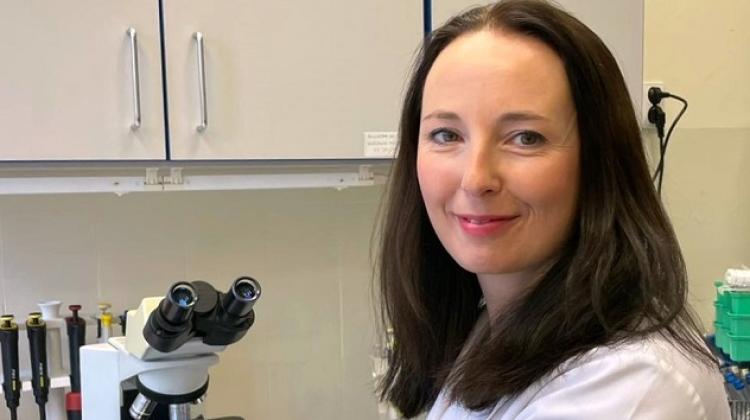Relive for health

We all experience them several times a day, they improve our moods, help us plan for the future and use the knowledge gained in the past. Investigating the mechanisms of involuntary autobiographical memories can help in the fight against unwanted memories that appear after experiencing traumatic events.
Involuntary autobiographical memories usually occur during the performance of non-engaging tasks. It is more likely to remember a chance meeting with a long-unseen friend, a taste of delicious dinner or watching a crazy comedy with friends when ironing than during a conversation that requires our focus.
"Involuntary memories arise spontaneously, without prior intent to recall something from the past. They are commonly experienced by all of us every day and mostly have pleasant and positive content. Exceptions are people with depression, in whose case positive memories are a smaller part of involuntary memories" - told PAP Dr. Krystian Barzykowski of the Laboratory for Applied Memory Research, headed by Prof. Agnieszka Niedźwieńska at the Institute of Psychology of the Jagiellonian University.
He explained that these are relatively "fresh memories", they usually concern matters that occurred in the recent past, for example a few months ago. "They play a very important role in maintaining good mood, sense of identity, help us plan for the future and benefit from our experience. Estimates indicate that they appear from a few to several times a day, but the data are usually understated" - described the researcher.
However, so far research on involuntary memories were primarily associated with post-traumatic stress syndrome. Lia Kvavilashvili of the University of Hertfordshire in the UK distinguishes three types of involuntary memories: non-intrusive memories, intrusive memories and flashbacks.
"The first type is common among healthy people; these are involuntary autobiographical memories, which most of us experience every day. They may have the content we perceive as positive, negative, or neutral. They appear suddenly and we rarely experience them repeatedly. Flashbacks and intrusive memories are described as recurrent and unwanted, ones we would rather avoid" - said Dr. Barzykowski.
He explained that particularly flashback memories occur in people with a history of trauma. They concern the event, which was its source. They bring pain, suffering and often lead to worse functioning on a daily basis. "A unique characteristic experiencing again the intense emotions associated with the traumatic event. Therefore, their content is always something negative" - said the researcher.
Between these two types of memories are also intrusive memories. These are recurrent, unwanted thoughts, which may have both positive and negative content. "Their intensity, however, is much smaller than in the case of flashbacks, and they are not accompanied by a feeling of re-living the event" - explained Dr. Barzykowski.
Scientists still have relatively little knowledge about the involuntary memories, and the first article on this issue, written by Prof. Dorthe Berntsen of the Danish Aarhus University, appeared only in 1996. In his doctorate funded by the National Science Centre under the ETIUDA scholarship, and in the research project funded by the National Science Centre in the PRELUDIUM competition, Dr. Krystian Barzykowski investigated how healthy individuals who have not experienced trauma recall the past.
"This type of research may be socially significant, because when we learn how the involuntary autobiographical memories are formed naturally in healthy people, we will be able to answer the question why we experience unwanted memories that make functioning more difficult" - the researcher told PAP.
His research focused primarily on the processes, which affect the frequency of formation of involuntary memories and on the processes which result in specific content. "In the future, it could help us to increase or decrease the amount of experienced memories as well as influence their contents. In other words, we might be able to develop strategies that lead to less frequent experience of involuntary autobiographical memories that concern traumatic events" - said Dr. Barzykowski.
The study of involuntary memories turns out to be quite difficult. You can not provoke them, because then they are no longer involuntary memories. Therefore, all scientists can do is wait for subjects to remember something record it, for example, in a special diary. Another way is to conduct research in the laboratory and experimental conditions. People are tasked with a variety of monotonous activities that favour or hinder the formation of memories of this type. When these memories occur, they are recorded, which allows to study them further.
"The tendency to experience involuntary memories increases with age. Elderly people in particular are eager to return to their past, they tend to look in that direction. On the other hand, such recall may further provoke involuntary memories. Hard to say what is the effect here, and what is the cause. We do know that older persons experience more involuntary memories compared with younger people" - he described.
There are also rare cases of people who spontaneously recall almost all of their personal past. One of these persons, according to Dr. Barzykowski, was a forty years old woman referred to as AJ. Her memory was a completely involuntary, automatic, and never-ending process of continuous recall, so she spent a lot of time on getting back to her past.
"From the description of the case we can conclude that her memory was an uncontrolled, never-ending stream of memories flooding her mind. This flow of information, however, prevented normal functioning. As she spoke, this unique, it would seem, ability for her was a burden, which made it difficult to focus on the present and think about the here and now. Thus, attempts to inhibit such involuntary memories required a lot of effort of her. And these efforts were not always effective" - said Dr. Barzykowski.
PAP - Science and Scholarship in Poland
ekr/ agt/
tr. RL
Przed dodaniem komentarza prosimy o zapoznanie z Regulaminem forum serwisu Nauka w Polsce.


















